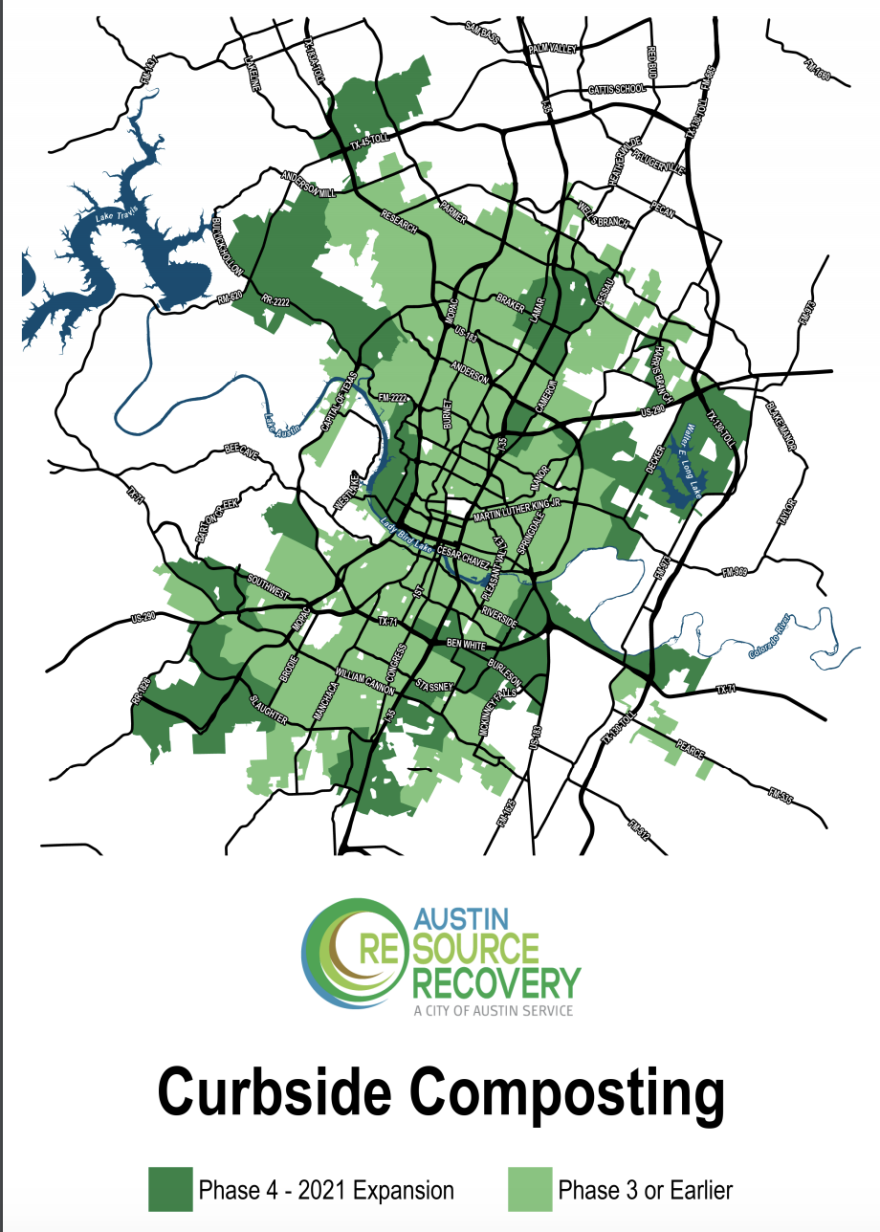More Austinites will be able to stick their food scraps on the curb come February.
The City of Austin is expanding its curbside composting program to the last batch of public trash collection customers. Roughly 55,000 more homes throughout the city will be able to have their compost picked up by Austin Resource Recovery, bringing the total served by the program to 207,000 by mid-February.

The program includes mostly single-family homes and excludes many multi-family properties, like apartment buildings, since those are typically serviced by private trash collectors. Residents can search their address here to see if they're included in the program and when their first collection will be.
“By collecting food scraps, soil, paper and yard trimmings at the curb, we will keep valuable materials out of our landfills, prolonging the life of the landfills, improving Austin’s air quality and reducing harmful greenhouse gases,” Austin Resource Recovery Director Ken Snipes said at a virtual press conference Tuesday.
Austin’s curbside composting program is part of a larger effort to cut down on waste. A decade ago, City Council members adopted a goal of diverting 90% of the city’s trash from landfills by 2040.
Since the composting program began in 2017, the city has diverted 91,000 tons of compostable material from landfills, Snipes said.
Composting is the process of turning organic material into nutrient-rich soil. You can put things like food, leaves and paper towels into a compost bin — similar to ones the city provides for recycling and trash — that you’ll then put out on the curb for your regular trash pickup. The city hauls this material to a commercial composter, where over the course of about a year it breaks down into compost that is then sold throughout the city.
“Compost helps with water retention," Snipes said. "It helps to fertilize crops and lawns and gardens, and it avoids the use of chemical fertilizer."
Austin Resource Recovery customers included in this last rollout of the program will get a postcard in the mail with an invite to a virtual town hall at the end of January where they can learn more about the program. Carts will be delivered to residents' homes between Jan. 26 and Feb. 16, the city said.
Got a tip? Email Audrey McGlinchy at audrey@kut.org. Follow her on Twitter @AKMcGlinchy.
If you found the reporting above valuable, please consider making a donation to support it. Your gift pays for everything you find on KUT.org. Thanks for donating today.






